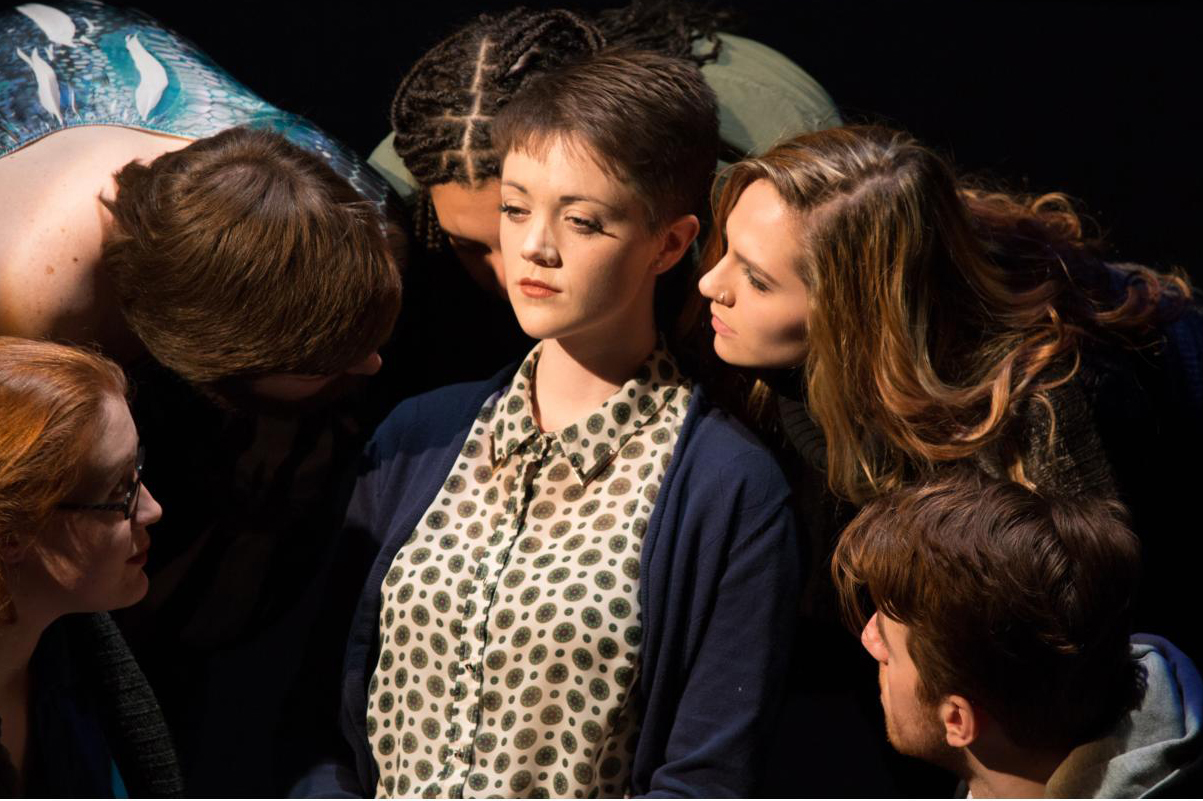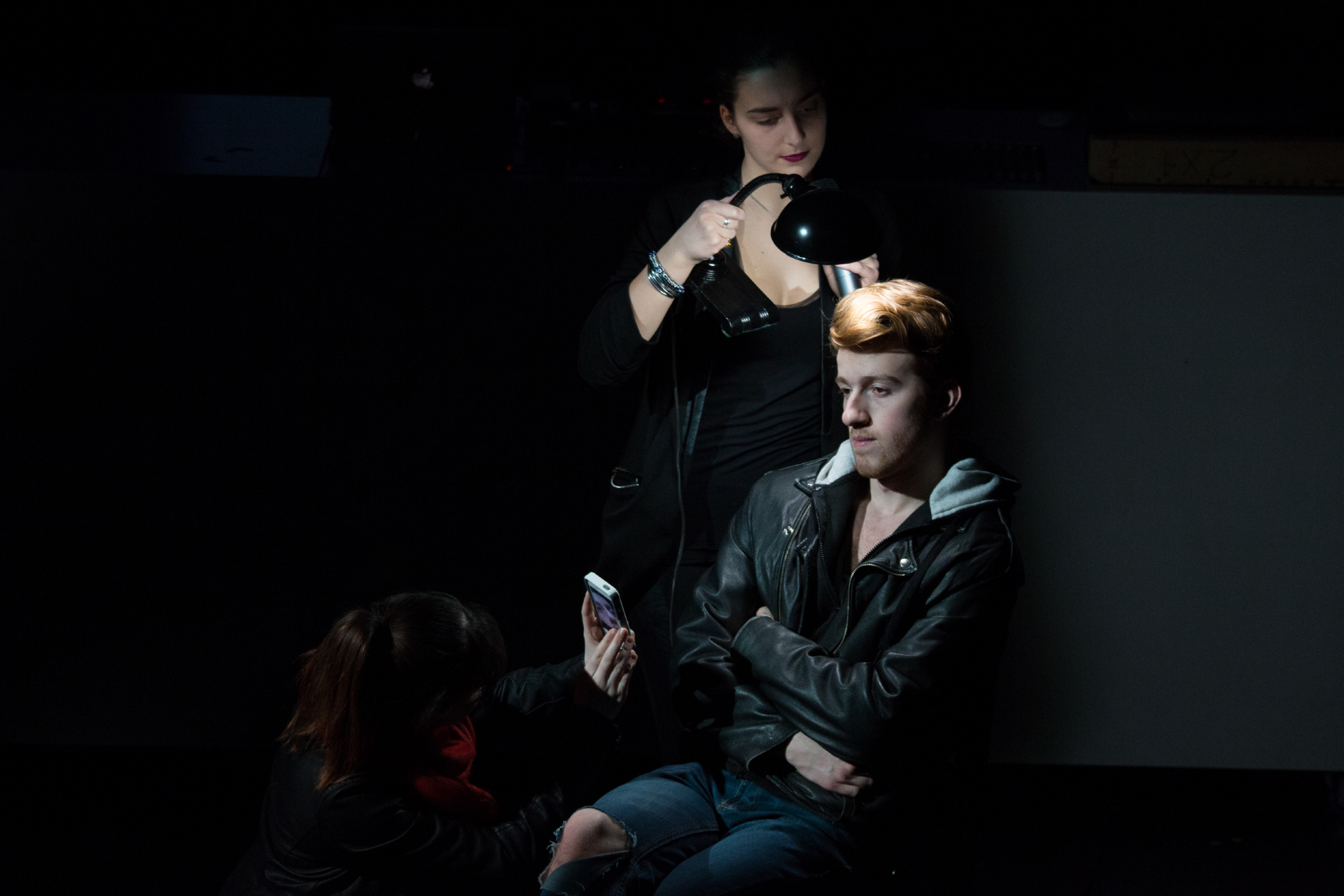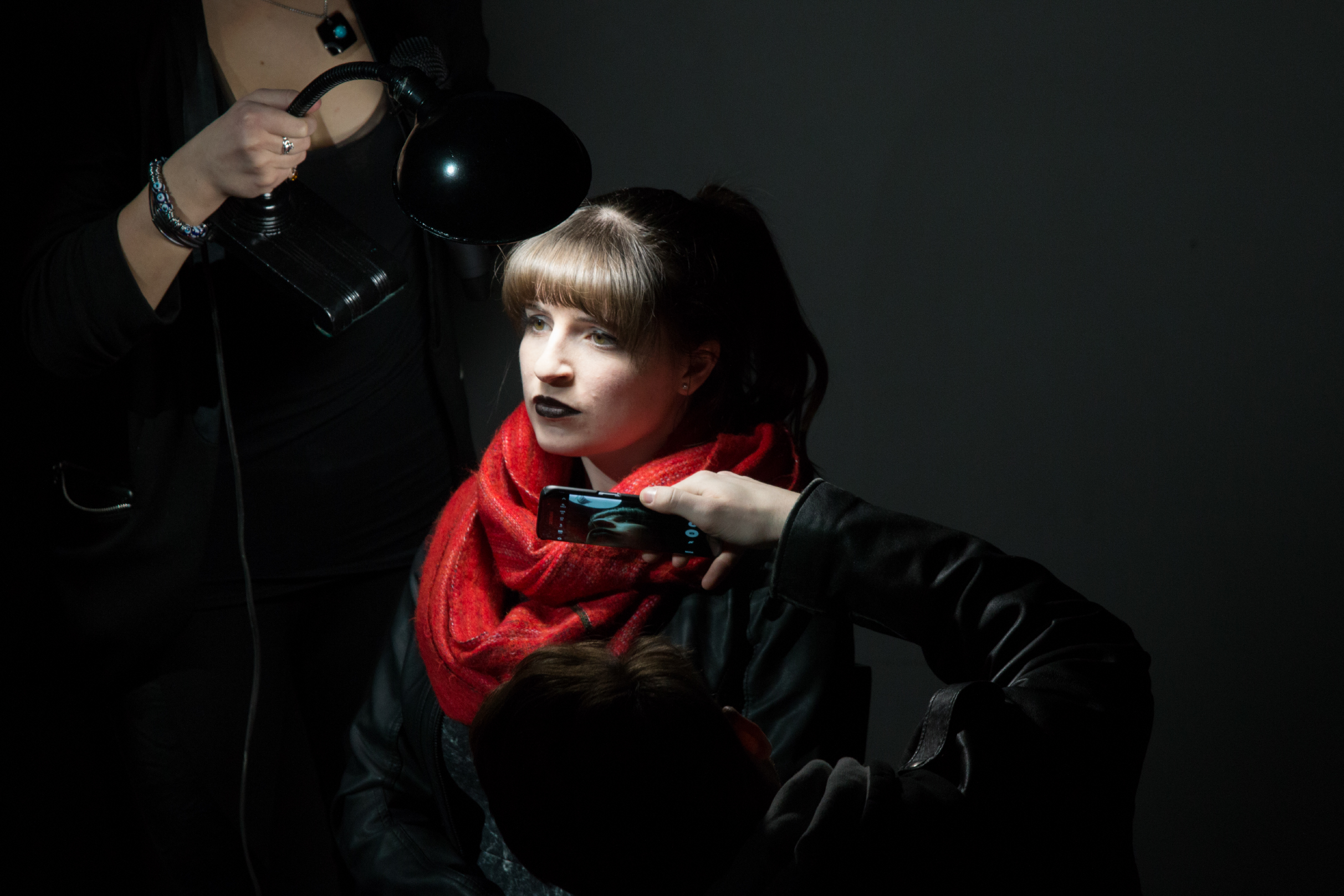Unconscious Curriculum
ADDITIONAL MATERIALS - Poster
- Press Release
University of Waterloo Dramatury Hub
I started working on this project in 2014. The impulse to bring the question of rape culture into the classroom came from some graffiti I saw in Kitchener; it said, “end rape culture.” I wondered, what is rape culture?
Before long, I realized that rape culture can be seen, experienced, and defined in many different ways. For most people like me – I am a heterosexual white man with the privilege of working at a university – there is a good deal of ignorance, at best, or misogynistic contempt, at worst, about the subject. There is also a lot of silence. At first I thought this was because the core of rape culture involves sexual assault, which victims are reluctant to speak about, but research and reflection revealed to me that, far more than shame or embarrassment, rape survivors resist speaking out because they fear they won’t be heard or believed.
This question of believability within rape culture became an important inspiration in the development ofUnconscious Curriculum. In devising this performance between one group of students tasked with writing and performing and another group working with the scenographic elements of video, sound, and light, the way we see and hear rape culture became a focus of our work. Given the ubiquity of smartphones and online self-expression, we have also explored the complicated ways in which people view and perceive the lives of others. In this regard, I think what we have discovered is an elaboration of Roland Barthes’s understanding of the gaze, which he defined in three interconnected ways: in terms of information (the gaze informs), in terms of relation (gazes are exchanged), in terms of possession (by the gaze, I touch, I attain, I seize, I am seized). Three functions: optical, linguistic, and haptic. But we also discovered that the gaze anxiously seeks something or someone. In our multimedia approach, I think we are revealing how rape culture is sustained by this complicated experience of gazing.
Our site is the University of Waterloo campus, where we investigate how educational practices, no matter how well intentioned, may be complicit in the problem of rape culture. We ask, in what ways are we, the University community, responsible for addressing the problem through education?
I’m glad you’ve joined us in this pursuit. You are invited to continue the conversation in our Q and A after the performance, and to check out the three other aspects of the Arresting Rape Culture initiative: the project’s on-line dramaturgy hub, the installation in the Theatre of the Arts Gallery, and our panel, Gendered Violence on Campus: Institutional Policy and Practice on Thursday, March 23 from 3:30 to 5 pm. All of these initiatives represent our department’s collaborative approach to arresting rape culture.






